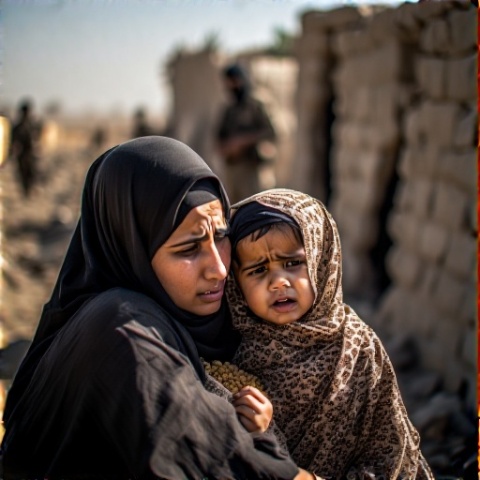Every parent dreams of nurturing children who are kind, respectful, and steadfast in faith. Yet, in today’s world of instant gratification and material abundance, many families struggle with the challenge of a “bad” or spoiled child—one who is demanding, ungrateful, or difficult to guide. Islam, with its holistic approach, offers a comprehensive roadmap for parents: from prayer and Qur’an to community engagement, religious study, heartfelt dua, and practical steps like sadaqa, halal income, nafl fasting, and tabligh.
The Islamic Perspective on Parenting and Child Behavior
Islam regards children as an amanah—a sacred trust from Allah (SWT). The Prophet Muhammad (ﷺ) said:
“Every one of you is a shepherd and is responsible for his flock…”
(Sahih Bukhari, Sahih Muslim)
A child’s behavior is shaped by environment, parental example, and spiritual nourishment. Excessive pampering and lack of boundaries can lead to spoiled behavior. Islam encourages a balanced approach—compassionate yet firm, nurturing yet principled.
The Roots of Spoiled Behavior: Understanding the Problem
A spoiled child is often the result of overindulgence, lack of structure, or inconsistent discipline. The Qur’an warns against excess and heedlessness:
“And do not waste [resources], indeed, He does not like the wasteful.”
(Qur’an 6:141)
Islamic parenting emphasizes boundaries, responsibility, and the development of self-control[1][8]. The Prophet Muhammad (ﷺ) modeled gentleness, patience, and wisdom—never resorting to harshness or humiliation.
Building a Foundation: Prayer and Spiritual Connection
Establishing Salah (Prayer)
Prayer is the cornerstone of a child’s spiritual life. The Qur’an instructs:
“Command your family to prayer and be steadfast therein…”
(Qur’an 20:132)
The Prophet Muhammad (ﷺ) said:
“Command your children to pray when they are seven years old, and discipline them for it (lightly) when they are ten years old…”
(Abu Dawud 495)
Teaching prayer with love and consistency helps children develop discipline and a direct connection to Allah (SWT).
The Power of Parental Example
Children learn by watching. Parents who pray regularly, recite Qur’an, and display good character inspire their children to follow suit. The Prophet (ﷺ) led by example, teaching through action and kindness.
Qur’an: The Light of Guidance
Introducing the Qur’an early—through recitation, memorization, and stories—instills love for Allah’s words. The Qur’an is a healing and guidance for hearts:
“Indeed, this Qur’an guides to that which is most upright…”
(Qur’an 17:9)
Regular family Qur’an time, attending classes, and reflecting on stories of the Prophets (AS) can transform a child’s worldview and behavior.
Community Engagement and Positive Socialization
A spoiled child often lacks exposure to broader social experiences. Enrolling children in Islamic schools, youth groups, or community programs teaches sharing, patience, and empathy. The Prophet Muhammad (ﷺ) encouraged involvement in the community and building bonds of brotherhood.
Religious Studies and Character Building
Islamic knowledge is the foundation of good character. Teaching children about tawheed, the stories of the Prophets (AS), and the importance of akhlaq (manners) shapes their values and choices. The advice of Luqman (AS) to his son in the Qur’an is a model for all parents:
“O my son, establish prayer, enjoin what is right, forbid what is wrong, and be patient over what befalls you…”
(Qur’an 31:17)
Dua: The Heartfelt Prayer of Parents
The dua of a parent for their child is powerful. The Prophet Muhammad (ﷺ) said:
“Three prayers are answered without doubt: the prayer of the oppressed, the traveler, and the parent for his child.”
(Ibn Majah 3862)
Pray for your child’s guidance, protection, and righteous character—especially during the last third of the night and after obligatory prayers.
Tahajjud: The Night Prayer for Transformation
Tahajjud, the voluntary night prayer, is a time when supplications are readily accepted. Parents who rise in the night to pray for their children demonstrate sincerity and reliance on Allah (SWT). The Prophet (ﷺ) said:
“Our Lord descends every night to the lowest heaven… and says: ‘Who is calling upon Me that I may answer him?’”
(Bukhari, Muslim)
Sadaqa: Charity as a Means of Purification
Giving charity with the intention of seeking Allah’s help in reforming one’s child is a noble practice. Sadaqa purifies wealth and hearts, and can be a means of removing spiritual obstacles.
Halal Income: The Foundation of Barakah
The Prophet Muhammad (ﷺ) emphasized the importance of halal earnings:
“O people, Allah is pure and only accepts that which is pure…”
(Muslim)
Providing for children through halal means ensures that their upbringing is blessed and their hearts remain receptive to guidance.
Nafl Fasting: Teaching Self-Control
Voluntary fasting (nafl) is a powerful tool for building discipline and empathy. Encouraging older children to fast on Mondays and Thursdays, or during special times, helps them develop self-restraint and gratitude.
Tabligh: Inviting to Good, Enjoining Right
Encouraging children to participate in dawah activities, charity events, or service projects fosters a sense of responsibility and belonging. The Qur’an says:
“Let there arise from you a group inviting to all that is good…”
(Qur’an 3:104)
Frequently Asked Questions
1. What is the Islamic approach to disciplining a spoiled child?
Islam teaches compassion, consistency, and boundaries. Discipline should be firm but never harsh or humiliating, following the example of the Prophet Muhammad (ﷺ).
2. How can prayer and Qur’an help change a child’s behavior?
Regular prayer and Qur’an recitation nurture discipline, spiritual awareness, and love for Allah (SWT), guiding children away from negative behavior.
3. What role does the community play in raising a righteous child?
Community involvement teaches social skills, empathy, and Islamic values, helping children learn from peers and mentors.
4. How important is dua in parenting?
Dua is essential. The sincere prayers of parents can open doors of guidance and protection for their children.
5. Does halal income really affect a child’s upbringing?
Yes. Halal earnings bring barakah (blessing), while haram income can negatively impact a child’s heart and receptivity to good.
Practical Steps for Today’s Parents
Modern life presents unique challenges—screen addiction, materialism, and peer pressure. Yet, the timeless principles of Islam remain effective. Structure your child’s day with prayer, study, and meaningful activities. Set clear boundaries and consequences, but always with love and patience. Model the behavior you wish to see. Seek support from community, teachers, and scholars. Most importantly, never underestimate the power of dua, tahajjud, and trust in Allah (SWT).
Conclusion: Nurturing the Next Generation
Transforming a spoiled child into a righteous one is a journey that demands patience, wisdom, and reliance on Allah (SWT). Islam provides a holistic framework—spiritual, emotional, and practical—for every stage of parenting. By combining prayer, Qur’an, community, knowledge, charity, and sincere supplication, parents can guide their children from self-centeredness to God-consciousness.
“Our Lord, grant us from among our wives and offspring comfort to our eyes and make us an example for the righteous.”
(Qur’an 25:74)
Let us strive to be role models, to pray for our children, and to trust in the transformative power of Allah’s guidance. May Allah (SWT) bless our efforts and grant our children steadfastness on the straight path. Aameen.






